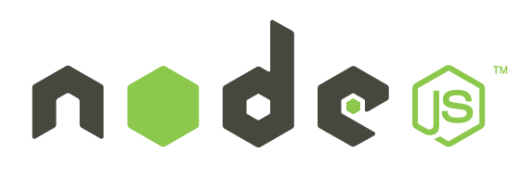MR template for writing services on Node.js

The point is this: node.js does not provide a ready-made solution for creating a project. My first project on node.js consisted of one coffeescript file and run.js to run from IDE. When the routes were five, everything was fine, but when the project was overgrown with models and routes, it turned into hell. They solve this problem in different ways, someone use a hub, someone global, someone puts everything in one file.
Attention: the decision does not claim to be the only correct one and generally correct. Just decided to share. Srach on the topic node.js vs erlang please do not dilute, they are in different categories.
For the impatient there is a project on githaba
I omit MR - Model Route, View because res.json is not a view, but a larger service is not needed.
Project structure:
├── app.coffee ├── config.coffee ├── models │ └── example.coffee ├── package.json ├── public │ ├── images │ ├── javascripts │ └── stylesheets ├── routes │ ├── index.coffee │ └── root.coffee ├── run-cluster.js └── run.js')
app.coffee
This is the entry point to the application.
exports.start = () -> log = require('logule') # log.debug "Spawning new worker" require 'coffee-script' # , .coffee require ### Basic dependencies ### express = require 'express' app = module.exports = express.createServer() app.__ = require 'underscore' # app.mongoose = require 'mongoose' # ODM MongoDb, and yes, it's web scale app.log = log # config = require('./config.coffee')(app,express) # models = {} # models.example= require('./models/example')(app.mongoose).model # require('./routes/index.coffee')(app, models) # , port = process.env.PORT || 5000 # Heroku app.listen port log.info "Express server listening on port #{port}"config.coffee
module.exports = (app, express) -> config = this app.configure -> app.use express.bodyParser() app.use express.methodOverride() app.use app.router app.use express.static(__dirname + '/public') app.configure 'development', () -> app.use express.errorHandler({dumpExveption: true, showStack: true}) # "" app.mongoose.connect process.env.MONGOLAB_URI || "mongodb://localhost/skel" # heroku app.configure 'production', () -> app.use express.errorHandler() app.mongoose.connect "mongodb://localhost/production" return configmodels / example.coffee
module.exports = (mongoose) -> Schema = mongoose.Schema ObjectId = Schema.ObjectId #Comment = mogoose.model('Comment') # , mongoose. PostSchema = new Schema { author : { type:ObjectId, index:true } date : Date, content : String #, comments : [Comment] # } this.model = mongoose.model('Post', PostSchema) # return thispackage.json
The engines section is for Heroku, everything else is clear.
{ "name": "mr-skel" , "version": "0.0.1" , "private": true , "engines": { "node": "0.6.x", "npm": "1.xx" } , "dependencies": { "express": "2.5.x" , "mongoose": "2.6.x" , "mongoose-types": "*" , "underscore": "*" , "coffee-script": "*" , "logule": "0.xx" }, "devDependencies": { "forever": "*" , "mocha": "*" , "should": "*" } }routes / index.coffee
This file stores all routes that are in the application.
routes = {} routes.root = require('./root.coffee') module.exports = (app, models) -> app.get '/', routes.root.getIndex(models) # , models root.cofeeroutes / root.coffee
exports.getIndex = (models) -> (req, res) -> Post = models.example Post.find {}, (err, posts) -> if err? return res.send 500 res.json { status: 'Ba dum tssh', meta: posts }run-cluster.js
Run an application using the Cluster API. It does not work on Heroku, but on my vps I launch the application this way.
cluster = require('cluster'); log = require('logule'); require('coffee-script'); if (cluster.isMaster) { log.info("Master have just started"); # i = - for (i = 1; i <= 2; i++) { cluster.fork(); } cluster.on('death', function(worker) { log.error("Worker " + worker.pid + " died!"); return cluster.fork(); }); } else { app = require('./app.coffee'); app.start() }run.js
require('coffee-script'); app = require('./app.coffee'); app.start();Source: https://habr.com/ru/post/143538/
All Articles